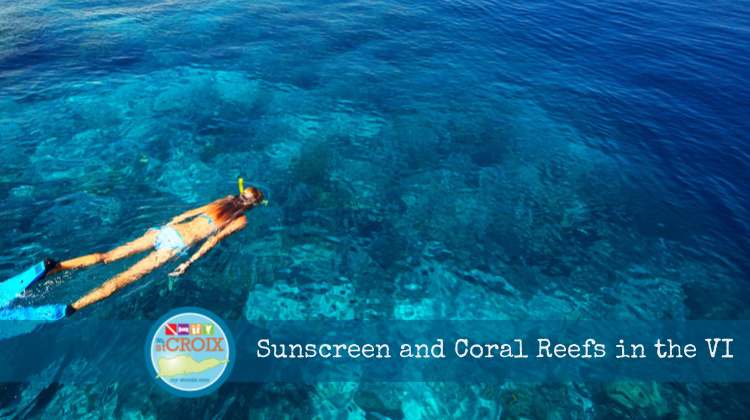
Call me an optimist, but I’ve always believed that people are inherently good and want to do the right thing when they are informed and educated.
In today’s world we are bombarded with information, much of it conflicting and that can lead to confusion and complacency.
Having lived through the catastrophic Hurricane season of 2017 that brought the US and its Territories storms named Harvey, Irma and Maria, I have no doubt that our Earth is changing and that average temperatures are rising. And these subtle temperature changes are having a devastating effect on coral reefs across the globe.
But the other day, I read something that made me proud to be a Virgin Islander and gave me some hope. Our local Government has introduced legislation to ban the retail sale, distribution, and importation of topical sunscreen products containing oxybenzone and octinoxate with Bill 33-0043.
If signed into law, this will go into effect as of January 2021. The bill follows the lead of the state of Hawaii who passed similar legislation in May 2018. To date, Hawaii is the first and only state to pass this kind of ban. If signed into law, The US Virgin Islands would be the second out of the 50 states and Insular Territories to ban sunscreens containing these harmful chemicals.
If the coral reef isn’t the primary focus, then human health absolutely should be. The FDA just recently announced that only titanium and zinc oxide are generally recognized as safe. These other ingredients [oxybenzone and octinoxate] are known endocrine disruptors, which means they affect our hormonal development. Unborn children are being affected by this.
Cosmetic Chemist, Autumn Blum during testimony to the 33rd Legislature
as reported by The St Croix Source
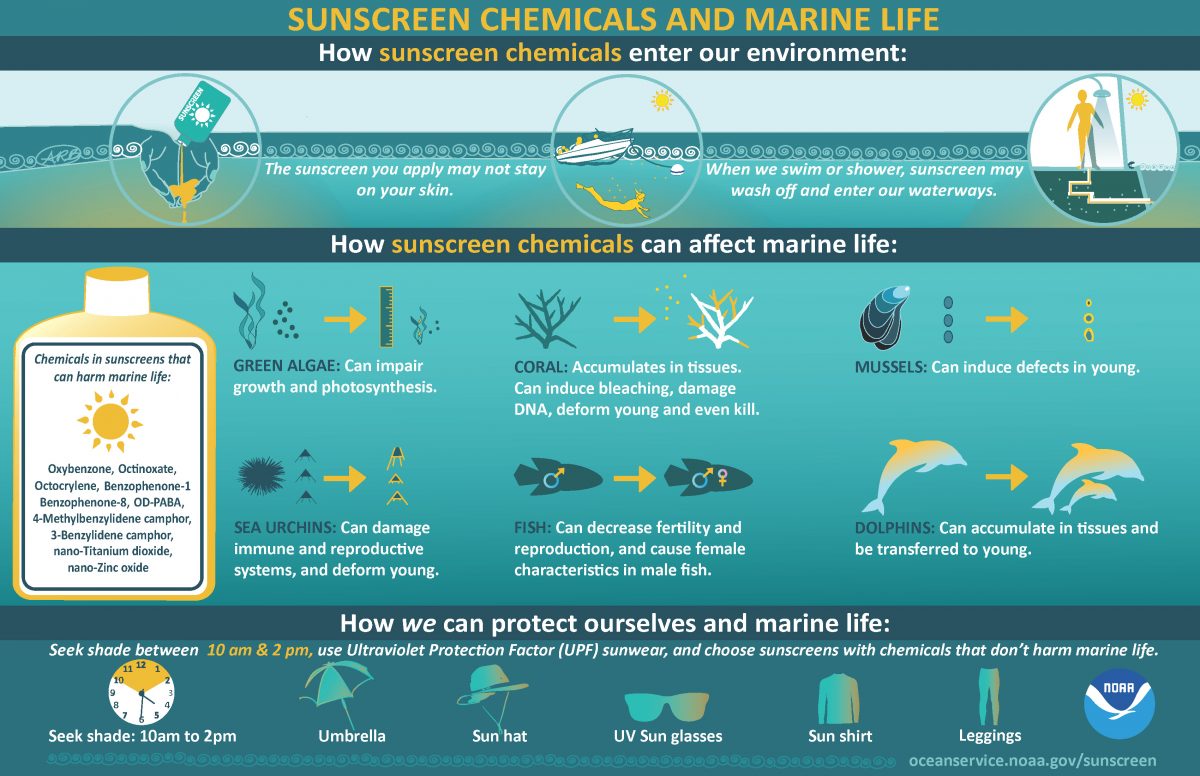
Coral Reefs and Climate Change
Why is this such a big deal? Because coral reefs are dying at an alarming rate and anything we can do to slow or reverse that decline is imperative.
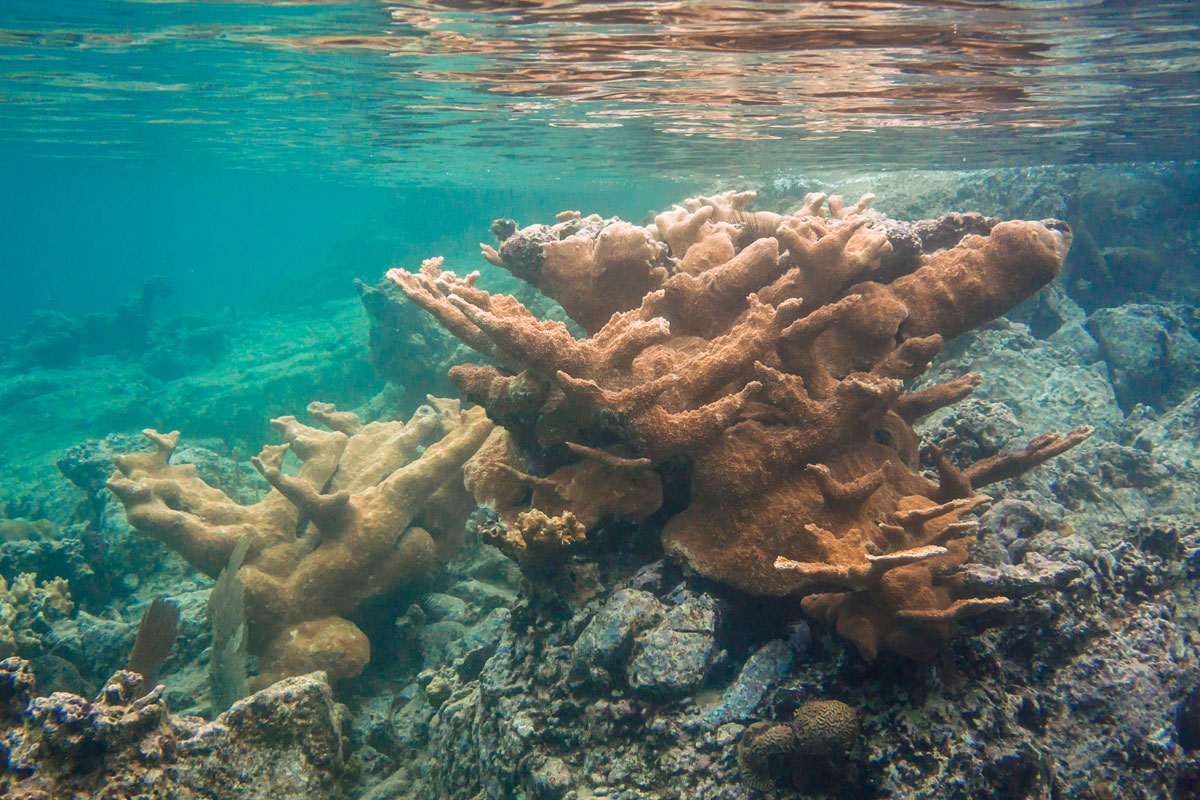
Coral reefs provide a source of food and income to over 500 million people worldwide.
Here in the Caribbean, reefs provide food for people and marine life, a source of income from tourism and barrier reefs protect our islands’ shores from larger waves and storm surge. If you think of the Earth like your body, our waterways (both fresh and salt) are like the blood circulating through your body. The oceans and tides pump water across the globe and into the atmosphere. Coral reefs are like the tiny capillaries that feed your muscles and tissues to sustain life. A critical piece of the circulatory system.
Facts About Coral Reef Bleaching
A rise of only 2°C or 3.6°F in ocean temperature can cause a catastrophic coral bleaching event in just a matter of weeks. When you get a fever, it causes a stress response in your body. You sweat, get the chills and can become delirious. If your fever is high enough, brain cells can start to die. For coral reefs, their stress response to a high fever is called “bleaching”.
The corals themselves are the backbone of the reef ecosystem. One coral organism is made up of hundreds of thousands of tiny coral polyps. The coral polyps live in a symbiotic relationship with tiny plant cells (algae) called zooxanthellae. During the day, the zooxanthellae feed the coral through photosynthesis. These tiny algae are what gives the coral its color.
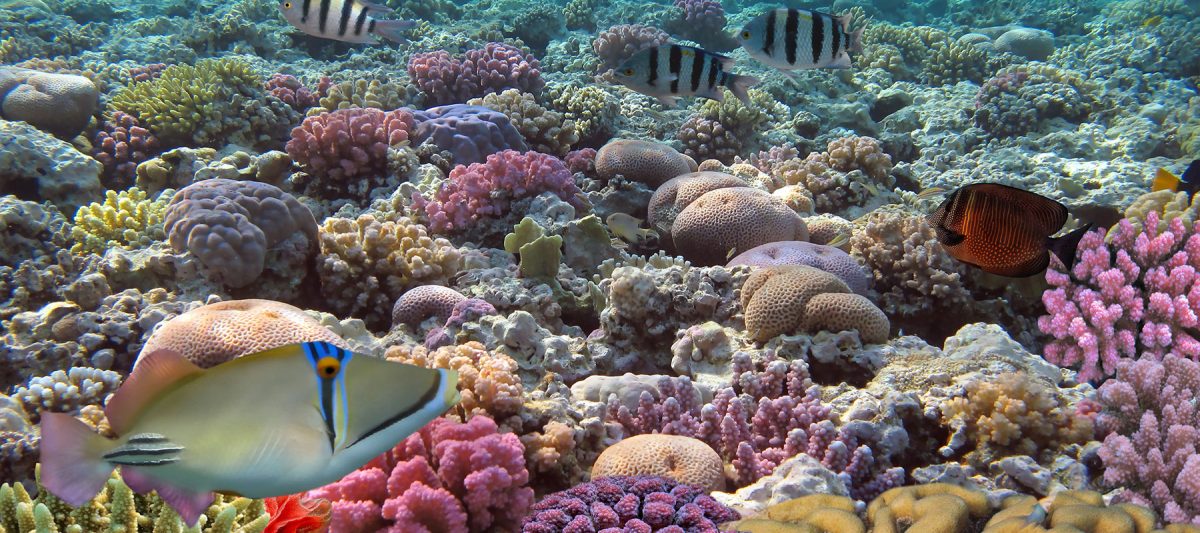
-
- Look for sunscreens that DO NOT contain oxybenzone and octinoxate.
-
- Choose mineral-based sunscreens with zinc oxide and titanium oxide. These ingredients stay on top of your skin and block harmful UV rays. They are not associated with coral bleaching.
-
- Make sure that the minerals are “non-nano” this means that the particles are larger than 100 nanometers and cannot be absorbed by corals. (or you!)
-
- Scrutinize the labels. Many sunscreens will say “Reef Safe”, read the ingredients to be sure.
-
- Wear UV filtering clothing and hats. Check out our 38-40 UPF Rashguards (UPF = Ultraviolet Protection Factor)

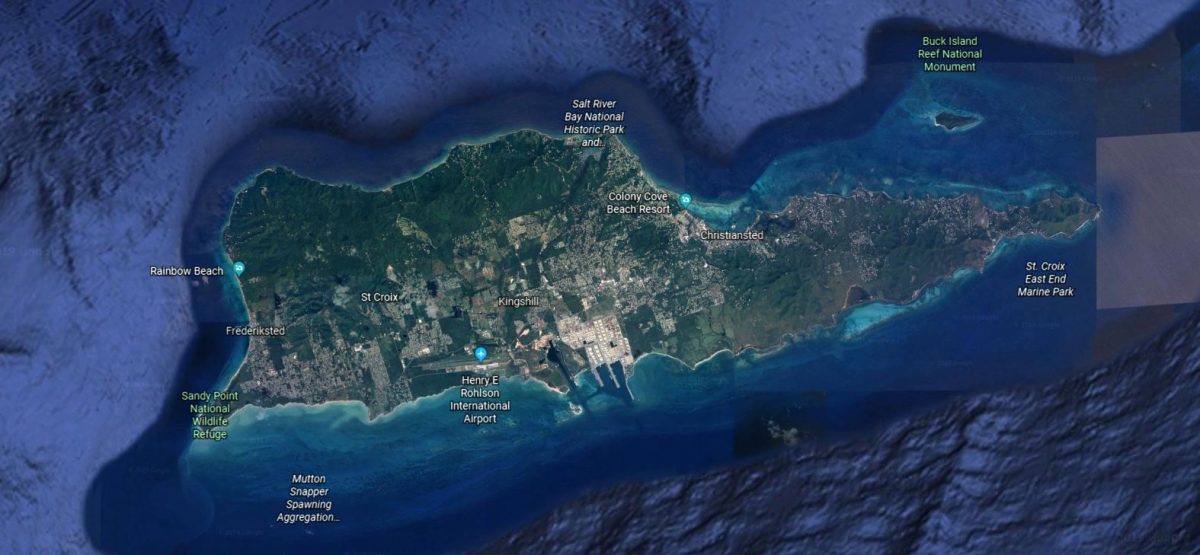
Be sure to include a snorkeling trip to Buck Island on your next St Croix adventure. Part of the National Park System, most of Buck Island Reef National Monument is underwater. The NPS requires new visitors to the underwater trail to explore the reef with a licensed guide.
